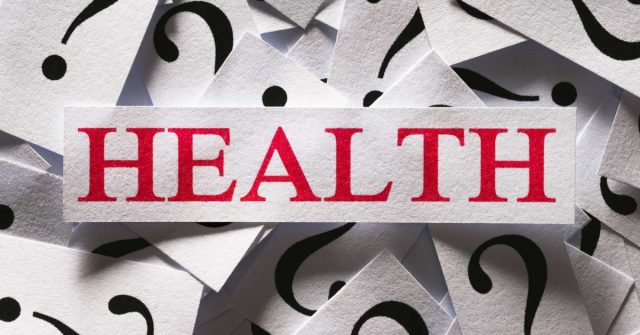- Egg Yolks Are Bad for You
The delicious yellow center of eggs get a bad rap from health reports, says Mashfika Alam, a doctor with online health consultancy iCliniq, who urges that we reconsider the belief that egg yolk can cause heart disease or atherosclerosis due to its “bad cholesterol.”
“Maybe because people only got to know the health benefits of egg yolk only recently, but egg yolk is recommended for everyone unless allergic, even people with heart disease as it is loaded with HDL which is a good cholesterol and actually counteracts the effects of bad cholesterol,” says Alam. “Hence one egg a day for everyone, unless allergic, at least five days a week is a good thing.”
- Cholesterol is bad
Cholesterol in general tends to get a bad rap.
“While cholesterol is an actual molecule, what it is bound to while it’s floating through your blood is what’s more important than just how much of it there is overall,” clarifies Lynne Wadsworth, a holistic health coach and founder of Holistic Health & Wellness, LLC. “The overall amount of cholesterol in your blood (AKA ‘total cholesterol’) isn’t nearly as important as how much of each kind you have in your blood. While way too much LDL cholesterol as compared with HDL may be associated with an increased risk of heart disease, it is absolutely not the only thing to consider for heart health.”
- “Starving Yourself” Can Be Effective for Weight Loss
The “starvation diet”—significantly cutting down the number of calories you consume in a day—may seem like an effective strategy for losing lots of pounds quickly. But in fact, a radical shift in your eating can lead to the opposite result.
“Eating too little or starving yourself is a very bad idea and it actually leads to rebound weight gain,” says Alam. “This has been a common notion among young teenage girls for a long time. Eat a balanced out low calorie diet, that will help you to lose weight.”
- Cracking Knuckles Leads to Arthritis
Cracking your knuckles may be super annoying and may result in people not wanting to sit near you for a prolonged period. But it’s not going to give you early-onset arthritis, as some might have you believe.
“This old wives’ tale comes from early speculation used before there was a better understanding of what exactly happens when one cracks their knuckles,” says Scheney. “The ‘crack’ is simply the popping of bubbles in the fluid that lubricates the hands, known as synovial fluid. While this practice does not cause arthritis, it does have some negative consequences as it has been found that it can lead to reduced grip strength and swelling in the hands.”
- Bottled Water is better for You Than Tap
Bottled water companies may promote the health benefits of their product and conspiracy theorists will warn you of the fluoride the government adds to tap water. But the fact is that (excluding the occasional disaster like that in Flint, Michigan) tap water in most municipalities is totally healthy. “Most municipal water is quite safe, and if palatable, can be taken directly from the tap. It often contains the useful minerals, magnesium and calcium,” explains Morton Tavel, clinical professor emeritus of medicine at Indiana University School of Medicine and author of Health Tips, Myths and Tricks: A Physician’s Advice. He adds that when you take a step back, bottled water is actually far less healthy for the world than tap water.
“Plastic bottles are made from petroleum. Energy is required to manufacture the bottles and run the bottling and refrigeration machines,” says Tavel. “It also requires fuel, typically petro-diesel, to transport the bottles to the place where you buy them. These combined energy costs are the oil equivalent of about one quarter the volume of each bottle and 1000 times greater than the energy costs to pump, treat, and deliver tap water. This explains why bottled water is far more expensive and wasteful than tap water.” If you want to skip water altogether, check out this guide for staying hydrated without needing any H2O.
- Eating Before Bed Makes You Overweight
“There is no magic hour after which you should fast before bed,” explains Lohre. “What you want to avoid is over eating for the day and eating junk food, period—we just happen to eat more junk food in the evenings.” She suggests that if you’re feeling hungry before bed, don’t starve yourself—have a small protein-packed snack (like a protein shake) in the evenings, which could potentially increase your metabolism overall. If you’re on the go, here are some snacks you can enjoy, too.
“As long as you are on track for the day with your calories, eating something just before bed will not hamper any fat-loss goals,” she adds.
- Crunches Give You a Six Pack
If those hours of abs exercises haven’t resulted in a defined six pack, you might want to reconsider what you are doing. “Building core strength with specific abs exercise is great, but if you maintain a layer of body fat over those abdominals, you will never see your six pack,” says Lohre. “If you really want a tight and defined core, combine strengthening exercises with a super clean nutrition plan that balances veggies, protein, complex carbs and healthy fats.”
- You should be Working Out at Least an Hour a Day
“Regular exercise has great health benefits, but fitting in a workout every single day is not often feasible or even recommended,” says Hershenson. “Everyone needs a rest day to let the body recover. Additionally, any activity is good activity even if it’s a 15-minute walk. Don’t cheat your body out of moving a bit because you think you don’t have enough time for a full workout.”
- If You Stop Weight Training, Muscles Turn to Fat
“Muscle and fat are two totally different types of tissue,” says Kennihan. “What happens many times is that when people decide to go off their weight-training programs, they start losing muscle due to inactivity (use it or lose it) and they also usually stop their healthy diet as well.”
So the bad eating habits combined with their lower metabolism (due to inactivity) and lower levels of muscle mass, give the impression that a person’s muscle is being turned into fat while in reality “what is happening is that muscle is being lost and fat is being accumulated.”
















